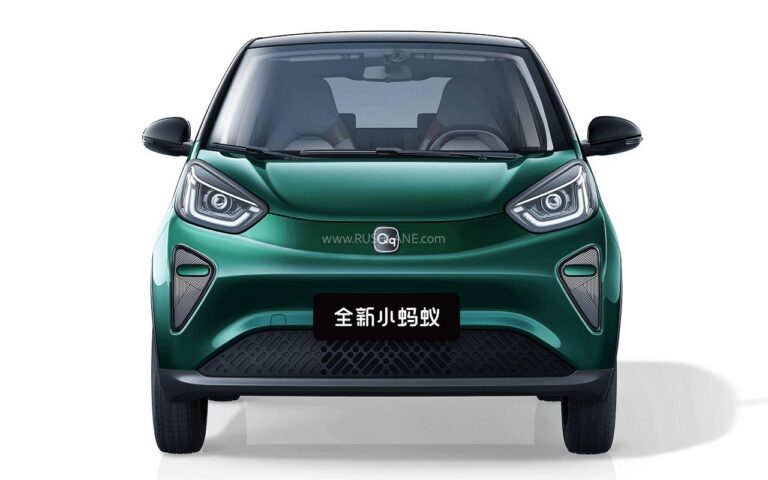Facing mounting competition from China’s emerging small car manufacturers, European automotive giants Stellantis and Renault are intensifying their lobbying efforts with the European Union to ease regulatory pressures. According to Reuters, the two industry leaders argue that stringent EU rules risk undermining their competitiveness in the rapidly evolving market, as Chinese rivals capitalize on more flexible policies and aggressive expansion strategies. This development highlights growing tensions within the global automotive sector as established European firms strive to adapt to shifting dynamics and protect their market share.
Stellantis and Renault Urge EU to Ease Regulations Amid Rising Competition from Chinese Automakers
Stellantis and Renault have jointly appealed to European Union regulators to reconsider the stringent automotive policies currently shaping the continent’s car market. With an influx of competitively priced small cars from Chinese manufacturers gaining ground, both automakers argue that existing environmental and safety regulations could disproportionately hinder their capacity to innovate and compete internationally. The companies emphasize that the regulatory framework, while aimed at sustainability, must strike a balance to preserve the market viability of European-made vehicles against the surge of affordable imports.
At the core of their lobbying efforts is a call for revisions that would enable:
- More flexible emissions targets allowing incremental innovation.
- Streamlined homologation processes to reduce time-to-market.
- Incentives supporting the development of compact urban vehicles.
Industry analysts suggest that the move reflects a broader anxiety among European carmakers as Chinese rivals capitalize on cost efficiencies and expanding EV portfolios. A recent comparative snapshot illustrates the competitive gap:
| Automaker | Average Price (€) | EV Model Range | Average CO₂ Emissions (g/km) |
|---|---|---|---|
| Stellantis | 23,000 | 5 | 95 |
| Renault | 21,500 | 7 | 89 |
| Leading Chinese Brands | 18,000 | 12 | 82 |
The data underlines the pressure on European firms to accelerate their transition to more affordable, lower-emission vehicles without compromising compliance. As the regulatory debate unfolds, the European Commission faces the challenge of fostering a competitive yet sustainable automotive market that can withstand the growing influence of Chinese manufacturers.
Industry Leaders Warn of Market Share Loss as Chinese Small Car Brands Gain Traction in Europe
European automotive giants Stellantis and Renault are ramping up their lobbying efforts within the European Union, urging regulators to reconsider and potentially ease a series of stringent emissions and safety standards. This strategic move aims to safeguard their market positions against the rapidly rising influx of competitively priced small car models from Chinese manufacturers. Industry insiders warn that without regulatory flexibility, European automakers risk losing substantial market share as Chinese brands leverage aggressive pricing, innovative electric vehicle technology, and targeted marketing campaigns across the continent.
The dynamics of the European small car segment are shifting dramatically, driven by several key factors:
- Cost-competitiveness: Chinese brands offer vehicles at significantly lower prices due to streamlined manufacturing and less burden from EU-wide regulatory compliance costs.
- Electric vehicle momentum: Many of these cars come with basic but efficient EV capabilities, appealing to environmentally conscious urban consumers.
- Adaptability in design and features: Tailored specifically for European city driving, these models emphasize compactness, connectivity, and affordability.
| Aspect | European Brands | Chinese Small Car Brands |
|---|---|---|
| Average Starting Price | €18,000 | €12,000 |
| EV Availability | Limited models | Wide range |
| Regulatory Compliance | Strict EU rules | Less stringent outside EU |
Automakers Recommend Targeted Policy Adjustments to Bolster Domestic Competitiveness and Innovation
Leading European automakers Stellantis and Renault are urging the European Union to reconsider stringent regulatory frameworks that currently challenge their competitiveness against emerging small car manufacturers from China. Industry insiders highlight that while sustainability targets remain crucial, overly rigid policies risk stifling innovation and impede the agility necessary to keep pace with dynamic global markets. Executives advocate for a balanced approach, emphasizing flexibility in emissions standards and certification processes that accommodate rapid technological advancements without compromising environmental goals.
Key policy recommendations put forward include:
- Streamlined approval pathways for electric and hybrid vehicle models.
- Incentives to support domestic R&D investment and advanced battery production.
- Adjustments to safety and emissions requirements tailored to small vehicle segments.
- Enhanced collaboration between regulatory bodies and automakers to align innovation timelines.
| Policy Area | Current Challenge | Proposed Change |
|---|---|---|
| Emissions Standards | Uniform thresholds limit small car diversity | Segment-specific flexibility |
| Approval Timeline | Up to 24 months | Reduce to 12 months for EVs |
| R&D Funding | Inconsistent subsidies across member states | EU-wide harmonized incentives |
In Conclusion
As competition from Chinese small car manufacturers intensifies, Stellantis and Renault are actively engaging with EU policymakers to seek regulatory relief. Their lobbying efforts underscore the challenges European automakers face in adapting to an evolving market landscape dominated by aggressive foreign players. How the EU responds could significantly shape the future of the continent’s automotive industry amid mounting global pressures.




